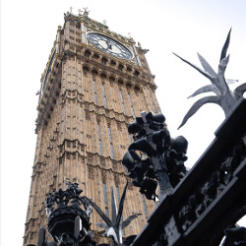The House of Lords has agreed to the amendments made to the Charities Bill in the Commons, which include provision for a statutory fundraising regulator if self-regulation fails.
Amendments to the Charities (Protection and Social Investment Bill) were considered and accepted by the Lords yesterday, and the Bill is now awaiting Royal Assent from the Queen to become an Act of Parliament.
Ministers began the legislative process at the request of the Charity Commission, after the regulator was criticised for being too passive in the wake of the Cup Trust scandal. The Bill gives the regulator wider powers relating to the disqualification of trustees and will enable it to issue warnings to charities.
It also makes provision for a statutory fundraising regulator if self-regulation fails, and makes it easier for charities to make social investments.
The parts of the Bill relating to fundraising were added by MPs when the bill reached the Commons to address issues highlighted by fundraising scandals this summer.
Rob Wilson, minister for civil society, said: “I welcome the broad support in Parliament for the Charities (Protection and Social Investment) Bill, which has now completed its passage through Parliament. The measures will help the Charity Commission to tackle abuses, help charities participate in the growing field of social investment and underpin the sector's approach to tougher, more robust and independent, regulation of fundraising.”
William Shawcross, chair of the Charity Commission, also welcomed the development.
At an event last week, the Commission's director of policy and communications Sarah Atkinson said the regulator is working with a number of rehabilitation charities about how it applies its new disqualification powers.
She said: “For us as the regulator, the Bill becomes an Act and then the real work starts for us as we have to implement it, and take the responsibilities that Parliament gives us – assuming it gives them – very seriously and very carefully. You’ve heard about the sensitivity and importance of those powers and we are very conscious of that.”
She went on to say that particularly for some provisions, the Commission will have to prepare guidance and support materials to inform trustees.










